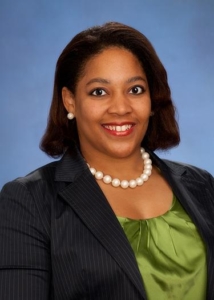 This article originally appeared on EvolvedEmployer.com, our new website about innovative workplaces – corporate diversity, sustainability, and responsibility.
This article originally appeared on EvolvedEmployer.com, our new website about innovative workplaces – corporate diversity, sustainability, and responsibility.
By Melissa J. Anderson (New York City)
The United States has finally repealed its infamous military “Don’t Ask, Don’t Tell” policy regarding gay men and women in uniform. Yet many LGBT individuals within America’s corporate space are still under similar DADT duress. The corporate closet drives individuals to keep mum on their personal life, which has real, tangible consequences for firms whose cultures aren’t “open.”
In today’s leading workplaces, the cost of the closet negatively impacts team relationships, employee retention and recruitment, and even client interaction.
Chris Crespo, Director of Diversity & Inclusiveness at Ernst and Young, said, “In our business, which is a business built on relationships, if you can’t be open and honest about yourself, it creates trust issues.”
Particularly in those industries where business is based on client relationships, like accounting, law, sales, etc., trust is a key ingredient for success. For example, law firm Shearman & Sterling recently released its own “It Gets Better” video, featuring some of its own gay employees. Only in a truly inclusive culture would the level of trust required to produce this kind of outreach be possible.
“We are very proud of our creative contribution to the ‘It Gets Better’ project,” said Anna Brown, Shearman & Sterling’s Director of Diversity. “Our lawyers and administrative staff members spoke candidly and from their heart, and I think that is why the video has been so very well received. The project is another example of our continued commitment, as a firm, to leadership in the LGBT community in this case as well as a broader commitment to global diversity and inclusion initiatives.”
As global competition for high performing employees increases, companies literally can’t afford to keep their LGBT employees closeted – they will leave for more progressive companies where they can be open and honest about themselves. Building an inclusive corporate culture has become a business imperative in the corporate space, and is likely to only grow in importance in the next few years. Here’s why.
 “Look ahead to other senior women who have gone through the experience and learn from them,” said Aynesh Johnson, Managing Director and Head of the Office of Global Leadership and Diversity at Goldman Sachs. But, she continued, “Be comfortable that you will be successful and do it on your own terms.”
“Look ahead to other senior women who have gone through the experience and learn from them,” said Aynesh Johnson, Managing Director and Head of the Office of Global Leadership and Diversity at Goldman Sachs. But, she continued, “Be comfortable that you will be successful and do it on your own terms.”
![Business people raising their hands with focus on mature ]woman Business people raising their hands with focus on mature ]woman](https://theglasshammer.com/wp-content/uploads/2011/01/iStock_000012499339XSmall-188x240.jpg) By Melissa J. Anderson (New York City)
By Melissa J. Anderson (New York City) This article originally appeared on
This article originally appeared on  By Melissa J. Anderson (New York City)
By Melissa J. Anderson (New York City) Contributed by CEO Coach Henna Inam
Contributed by CEO Coach Henna Inam By Melissa J. Anderson (New York City)
By Melissa J. Anderson (New York City) By Elizabeth Harrin (London)
By Elizabeth Harrin (London)